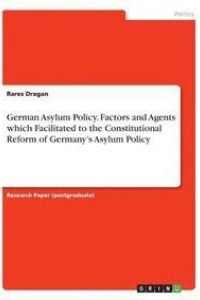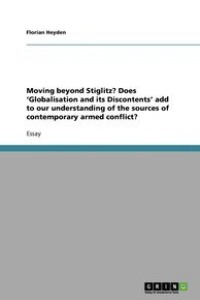
Liknande böcker
German Asylum Policy. Factors and Agents which Facilitated to the Constitutional Reform of Germany's Asylum Policy
Bok av Rares Dragan
Research Paper (postgraduate) from the year 2017 in the subject Politics - Basics and General, , language: English, abstract: In 1993 Art. 16 of the German constitution was changed, making the right to asylum to go from a benevolent law to one of the strictest laws in Europe at that time. Is this change a reform or not? Reform is described "as the fundamental, intended, and enforced change of the policy paradigm and/or organizational structure of (an organization within) a policy sector.". A clear and needed two-thirds majority of the Federal Council voted in favour of the change to Germany's constitution concerning the asylum policy. This alteration of the constitution can be recognized as a reform because it is fundamental, clearly intended and an enforced change of a policy paradigm. Normally, reform is very difficult to achieve because of multiple barriers that stand in its way. So, how can a policy deeply embedded in Germany Constitution and in the public's eye as compulsory, for almost half a century, suffer such a radical transformation? Before 1993 there was another attempt to change the same article but it failed. Which barriers blocked the first attempt and which were overcome in the second one?
To better understand the concept of reform and its constraints this paper will investigate this case in order to answer the before mentioned questions. The essay aims to study the factors and agents which facilitated to the constitutional reform of Germany's asylum policy. In the next section, there will be presented a historical insight of the new and old Article 16. Section three lists the theories that will be used for this case. The fourth section will combine second and third sections to make the case analysis. And the last section will shortly reevaluate and answer the question and subquestion mentioned before.







